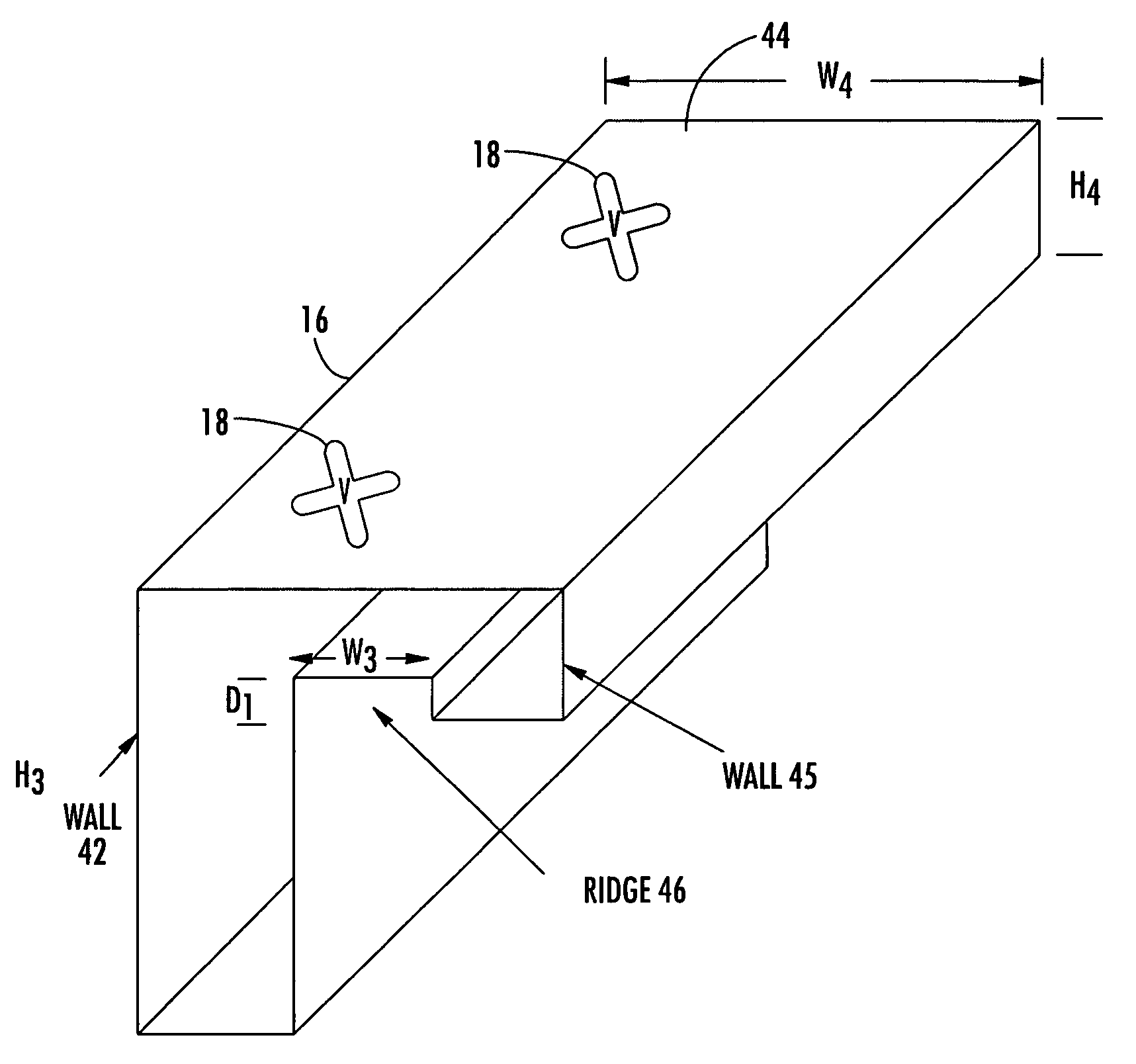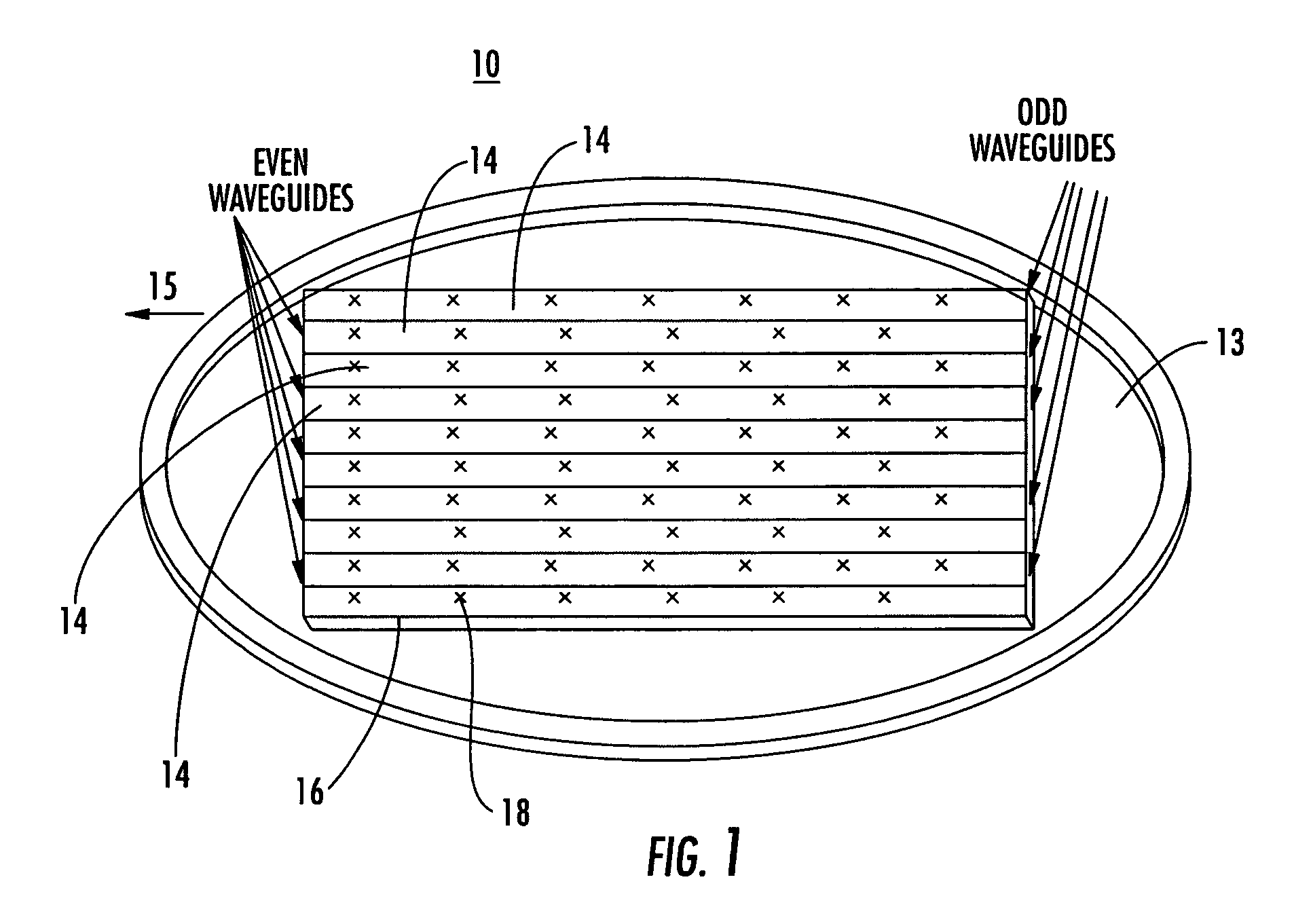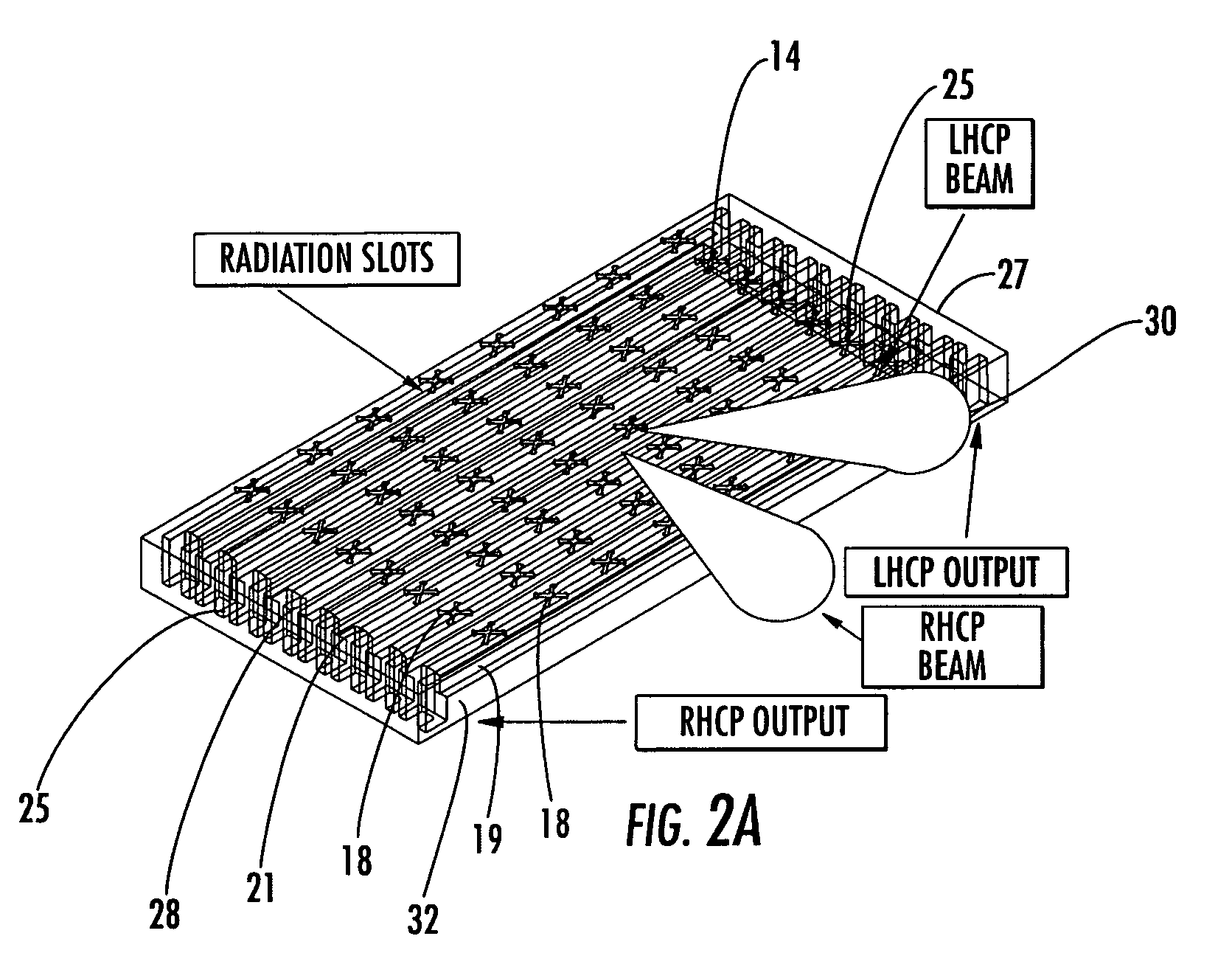Vehicle mounted satellite antenna system with inverted L-shaped waveguide
a satellite antenna and inverted l-shaped technology, which is applied in the direction of antennas, slot antennas, antennas, etc., can solve the problems of further beam tilting away, and achieve the effects of low grating lobe gain, low axial ratio, and high efficiency
- Summary
- Abstract
- Description
- Claims
- Application Information
AI Technical Summary
Benefits of technology
Problems solved by technology
Method used
Image
Examples
Embodiment Construction
[0046]Reference will now be made in greater detail to a preferred embodiment of the invention, an example of which is illustrated in the accompanying drawings. Wherever possible, the same reference numerals will be used throughout the drawings and the description to refer to the same or like parts.
[0047]FIG. 1 is a schematic diagram of antenna system 10 in accordance with the teachings of the present invention. Waveguide antenna 12 comprises an antenna array formed of a plurality of waveguides 14 positioned parallel to each other on horizontal platform 13. Horizontal platform 13 is rotatable under mechanical steering and motion control for aiming the antenna in the azimuth direction.
[0048]Waveguide axis 15 is in a direction perpendicular to the antenna aiming. Radiating surface 16 is the broad side facing the zenith direction. Radiating surface 16 of the waveguide antenna 12 includes a plurality of radiating elements 18 distributed at uniform spacing along waveguide axis 15. Radiati...
PUM
 Login to View More
Login to View More Abstract
Description
Claims
Application Information
 Login to View More
Login to View More - R&D
- Intellectual Property
- Life Sciences
- Materials
- Tech Scout
- Unparalleled Data Quality
- Higher Quality Content
- 60% Fewer Hallucinations
Browse by: Latest US Patents, China's latest patents, Technical Efficacy Thesaurus, Application Domain, Technology Topic, Popular Technical Reports.
© 2025 PatSnap. All rights reserved.Legal|Privacy policy|Modern Slavery Act Transparency Statement|Sitemap|About US| Contact US: help@patsnap.com



